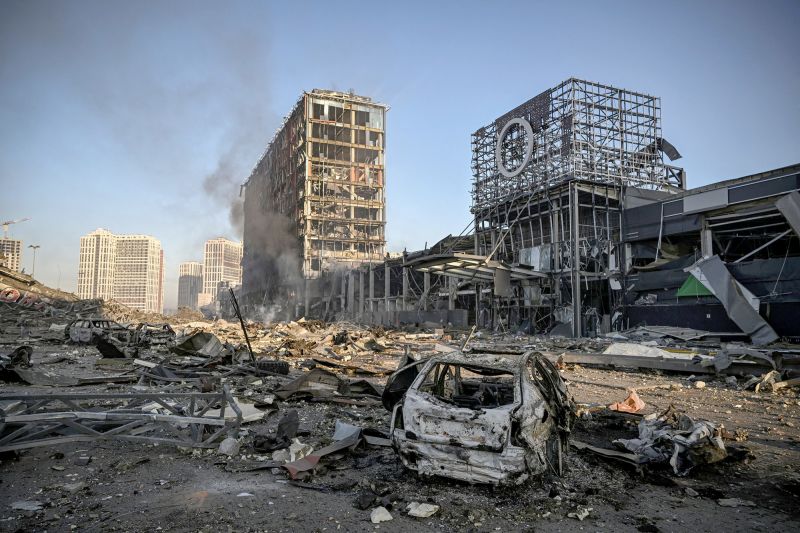
The Human Exchange: Russia and Ukraine Swap Prisoners of War

A historic exchange took place between Russia and Ukraine, involving hundreds of prisoners of war. The negotiations were facilitated by the United Arab Emirates, leading to the return of service members to their respective countries.
The Exchange Process
In a significant development on Thursday, Russia and Ukraine conducted a large-scale swap of prisoners of war. The exchange, orchestrated with the mediation of the United Arab Emirates, saw the return of 100 Russian service members in exchange for 100 members of the Ukrainian Armed Forces (UAF). This diplomatic breakthrough marked a crucial step towards easing tensions between the two nations.
TOPSHOT - Smoke billows after a Russian attack on the Retroville shopping mall abd residential district of Kyiv on March 21, 2022. - At least six people were killed in the overnight bombing of a shopping centre in the Ukrainian capital Kyiv, an AFP journalist said, with rescuers combing the wreckage for other victims. (Photo by ARIS MESSINIS / AFP) (Photo by ARIS MESSINIS/AFP via Getty Images)
The Russian Ministry of Defence revealed that the freed servicemen would be transported back to Russia via the Russian Air Force, where they would receive comprehensive medical and psychological support. On the Ukrainian side, the Coordination Headquarters for the Treatment of Prisoners of War (KSHPPV) confirmed the release of 49 soldiers, 25 border guards, and other personnel from the territorial defense forces.
Among the released soldiers, the KSHPPV highlighted the diversity of roles, with 84 individuals having defended Mariupol, including 82 'defenders of Azovstal,' while others had been deployed on combat missions in the Donetsk and Luhansk sectors. This exchange not only symbolized a diplomatic breakthrough but also underscored the human cost of conflict and the importance of humanitarian gestures in times of crisis.
The Reintegration Process
As the exchanged prisoners returned to their respective countries, Ukrainian President Volodymyr Zelensky expressed his relief and commitment to the reintegration process. Zelensky, in a statement on Telegram, welcomed the returning servicemen, emphasizing that they were all 'ours' and back on their native soil. The President reaffirmed Ukraine's dedication to supporting and assisting each individual in their transition back to civilian life.
The reintegration efforts encompass a range of support services, including medical care, psychological counseling, and social reintegration programs. These initiatives aim to address the physical, mental, and emotional well-being of the returning soldiers, recognizing the challenges they may face in readjusting to civilian life after experiencing the traumas of war.
International Implications and Challenges
The prisoner exchange between Russia and Ukraine holds broader implications for international diplomacy and conflict resolution. While the successful negotiation and release of prisoners signify progress towards de-escalation, the underlying geopolitical tensions and security concerns persist.
The role of mediators, such as the United Arab Emirates, in facilitating dialogue and cooperation between conflicting parties highlights the importance of third-party intervention in resolving conflicts. However, challenges remain in ensuring the sustainable peace and security of the region, as the exchange of prisoners is just one step in a complex and protracted conflict.










